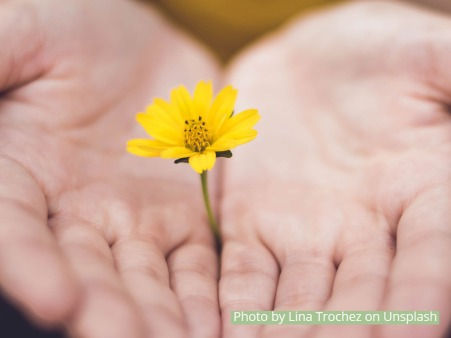Originally published in the Trent Voices / Trent University Magazine
Common Earth examines ecology within a system of global social, political, and economic environments
Over the past two years, the world has been focused on COVID-19 and finding ways to fight the rapidly-adapting global pandemic. And while that need is indeed dire, it has shifted spotlight from other issues needing immediate planet-wide attention, such as climate change. Meanwhile, disastrous floods in Germany and China, wildfires in California, Greece, and Western Canada, and an astonishing and deadly “heat dome” in the Pacific Northwest have revealed what scientists have been saying for some time: the climate crisis has gone from an emergency with a tipping point somewhere in the future to one that has arrived and is worsening daily. Experts are no longer merely working on ways to prevent climate change, but also assessing just how badly the planet and its inhabitants will be affected and what we can do to mitigate the worst impacts of this rapidly changing world.
The Trent Voices podcast and TRENT Magazine have reached out to a pair of alumni currently offering a comprehensive course that contextualizes climate change within a framework of other social, political and economic systems, and challenges individuals to recognize their inherent agency and resiliency when it comes to facing the climate crisis and making meaningful change.
Dr. David Patterson ’66 is the founder, chair and CEO of the Northwater group of companies, with a 31-year history in investment management. He holds an honors B.A. from Trent University, an M.B.A. from the University of Toronto, and a Doctor of Laws, also from Trent University. Dr. Patterson and his wife, Anne, are the driving force behind the Drain Chair in Ethics at Trent University, in honour of Dr. Patterson’s uncle, Ken Drain. In 2020, Dr. Patterson turned his full attention to a new effort called Common Earth.
Sarah Patterson ’92 (B.A. Hon. Sociology/French), David’s colleague and niece, has been working with Common Earth since the fall of 2020. Together, they’re helping to build a community of people who, after participating in the Common Earth program, are equipped with new ways of looking at and understanding how the world works.
This interview has been edited for length and clarity.
TRENT Magazine (TM): What comes to mind when you hear the words “climate crisis”?
David Patterson (DP): The climate crisis, in my mind, trumps everything. The climate crisis is clearly moving beyond where we can do something about it. So, I think that our focus really needs to be on how we get out of the situation that we’re in; and where our current socioeconomic system is creating the crisis and is resisting moving forward to deal with it.
Sarah Patterson (SP): I think that we’re really good at compartmentalizing things. Yes, we’ve been focused on COVID, and yes, it’s been taking a lot of our attention, but it only exists in a context in which the climate crisis is happening, and is present because we’ve been encroaching on habitat that’s made it possible for COVID to be here. Part of what we’re up to, is starting to understand some of these interconnections and ways of looking at the world in a more holistic way, to understand how interconnected these things are; how dangerous it is to look at them in isolation, and to not understand the broader context in which they are being made possible.
TM: In terms of urgency and the need for attention, where are we in terms of the crisis? Is it inevitable? Are we too late? Can we turn the ship around?
DP: With Common Earth, we’re addressing a question—and it really is a question for us. We’re not saying “Okay, here’s the solution,” and having everyone follow us. What we’re saying is, “Hey, we’re all really clear on how serious the climate crisis is.” Some of us may not understand the nature of exponential growth, but COVID has been testing our ability to deal with something that is worsening at an exponential rate, and the climate crisis is also of that nature. It’s growing exponentially—by which I mean that things compound on each other, and that it gets worse as they compound. An example of this is the melting of the permafrost, which gives off more methane; and methane is 25 times worse than carbon dioxide in terms of global warming.
There are things that we can see. For instance, the melting of the ice cover in the Arctic is reducing the amount of light and heat that is being reflected back into space. And so, the Arctic Ocean (and the Antarctic Ocean) are absorbing more heat. Those are dramatic things that most people understand in the world of climate. But I think people may miss the exponential nature of it, and the fact that, at some point, it gets beyond what we can do anything about; that we could get to the point of it being so severe that civilizations collapse. We could make the world uninhabitable for large animals, including ourselves, for 100,000 years.
There are 400 nuclear plants on earth. If civilization collapses, who’s going to look after the nuclear plants, and keep them from making the world uninhabitable? It’s a severe crisis, and, yes, it can go far beyond our control. The severity is not merely an extra hurricane per year, or the number or severity of rainstorms in, say, New York, but more in the progressive nature of the crisis.
TM: What is Common Earth’s mandate? What are you hoping happens when you bring people together?

DP: Central to our approach is addressing a question: How can we move to being a caring society that puts carbon in its place? And by saying that, we’re addressing what we’d like our community to be, in some ways: a search engine for society. We’re trying to find the path that we could imagine going down as a society.
There’s tremendous resistance in our current society to making moves in this direction. The socioeconomic political framework that we operate out of is pushing back very heavily on doing anything significant about climate change. We have political leaders that are trying to operate somewhere in the middle, and if you’re operating on a distribution, that’s a normal distribution. Things come back. Things get extreme and then they come back—for most issues, that’s the way we’re used to operating. We’re not used to operating in situations where things compound and get worse and worse. We’ve seen the difficulty of dealing with the pandemic and we’re also seeing the difficulty of dealing with the climate crisis.
TM: Tell us a little bit about how the climate crisis is contextualized within other global systems.
SP: As I see it (and that’s all I’m talking about), I see climate and what’s happening with global warming as a symptom, and as a social justice issue. I think that there are all sorts of other social justice issues that are equally symptomatic of some of these larger systems and contexts that we’re operating in. So, when we talk about getting at root cause, what we’re talking about is the understanding of the world that we have, and what these things are predicated on. They are all based on some very similar, and very flawed understandings of the world and the way it works. For instance, our relationship to the planet, as if it were a resource for our own personal gain. That’s some problematic thinking, I would argue.
Capitalism, as a system, is predicated on the idea that we are only motivated by our own personal gain. That’s what the entire system is created from. It’s the thinking that gives birth to that system. So, when we talk about getting to the root cause, we’re talking about questioning some of these foundational understandings of the world and our place in it, and hopefully, as a result, shifting some of those understandings of who we are and why we’re here. Having people understand that they’re more than just a consumer cog in the wheel. That they’re bigger than that. By doing so, by trying to look at it in an even bigger context—by getting at that root level and shifting that level— we can actually have this whole thing come down like a house of cards.
TM: A caring community is a very different thing than a community that has approached and dealt with climate change to the best of their ability. Can you tell us what a caring community looks like?
DP: It seems to us that there are some of the underlying structures in our society that are both creating the climate crisis and creating some of the social justice issues that we face. There are less caring ways to deal with the issue. If we had a global dictatorship, it might be able to deal with the climate crisis. But it sure as heck wouldn’t be a society that many of us would want to live in. So, the question is, how do we take some of the wonderful gifts that the modern age (since the industrial revolution) has given us? How do we hang on to some of the benefits that we’ve been given by fossil fuels— because it’s all been fueled by fossil fuels—and still try to maintain some of the benefits that we’ve gained from modern civilization? That would include our modern healthcare, or many of the social safety nets that we have in countries like Canada.
TM: What can people who are taking the course expect?

SP: Well, that’s a tricky one, because it’s a little bit different for each person, but agency and resiliency are two things that people are definitely taking away. I think there are many ways in which people are aware of what is happening with climate change and are feeling disengaged and disempowered. Whether it’s because they feel like they’re only one of more than seven billion people and there’s nothing that they can do that’s going to have any material impact, or whether it’s because they think that we’ve already passed the point of no return and that it’s hopeless, or whether they tell themselves some interesting, curious stories about the fact that climate change isn’t happening. Whatever it is, there are all sorts of ways that people are finding to be disengaged.
But with Common Earth, people are tapping into understanding their own agency and the impact that each of us can actually have. I think people have become more aware of the role that their own thinking plays in authoring their own experiences, and not just with the climate crisis. That’s really empowering. Participants are reporting that their own lives become infinitely easier when they understand that—and their role as parent, as spouse, as employee, as boss, whatever, shifts dramatically through that deeper understanding. So those are really lovely, anecdotal moments of individuals having major shifts that change the quality of their lives in really meaningful ways. And, as part of that caring community that we’re trying to create, I, of course, am moved deeply by each one of those instances.
Now compound these experiences by acting as a collective, as a community of people that can support each other in that caring attitude. I think that’s really empowering. And I think that would probably be the single biggest unifying thing that people are taking away.
DP: A couple of examples: One of our participants recently said she had been working on a five-month project at work and had been looking forward to finishing it and got the news, at the last moment, that it was going to be another five months. Normally, that would have laid her out for weeks in terms of disappointment. But, having been through our course, she was able to rebound and understand that she didn’t need to take herself through days and weeks of being upset about the disappointment. She still experienced disappointment, but she found that she was more resilient in dealing with it.
A second example would be one of our fellows in New Zealand (we have had people from over a dozen countries taking part) who was inspired to start a project. They have erosion problems with gullies coming down from the hills and mountains towards the sea in New Zealand. Growth in the gully has taken away the trees and such that hold the ground in place, so he’s taken this gully restoration on as a project. And that’s lovely for us to see. We didn’t do that (we didn’t even know about the gully)—he’s doing it. So there’s another example of some of the tangible work that’s coming out of this course.
TM: Scientists are beginning to say that the climate tipping point is now behind us. But you’re offering a different tipping point: sociopolitical systems that need to change for a number of reasons, whether it be climate change, social justice, a sharing of wealth and resources. What do you think that tipping point looks like on a macro scale? On a global scale?
DP: We don’t have that answer as to where we’re going, but we do know that we won’t go down a better path unless we have a vision for that better path. When I go back to my search engine metaphor, we’re looking for that path here, and we know some of the elements. So the agency and resiliency are definitely part of going down that path. As we create a community that is actually operating in a caring manner, people look to it and say, “Hey, that’s a better way for us to be operating.” We think that’s how we reach the tipping point. Otherwise, we’re just a frog in a pot of boiling water. If you throw a frog into a pot of boiling water, it’ll hop out immediately. But put a frog into cold water, and then slowly heat it up, and it will stay—and it will then die. We are all boiling frogs here in terms of the path we’re going down. And we do need to find another path, so that we jump out of the one that we’re going down right now.
TM: What is one thing that you want people to know about Common Earth?
DP: I think it’s a matter of boundaries. Anytime you are talking about any system, you have to decide on the boundaries of that system. Because every system is stacked on other systems—both up and down—and there are subsystems. What are the boundaries? We are trying to move people’s boundaries up from saying, “Me and my parakeet are what I’m caring about.” We’re trying to move people’s boundaries outwards from of the self—that’s central to our efforts. And what is the self? We talk about the foot as if it’s something that you possess, as opposed to something that is a part of you.
But there’s a whole lot more than just my foot that I’m dependent on. I’m dependent on a whole lot of farmers who feed me. I’m dependent on having air to breathe. And so, I’m very much linked to the trees that are providing me with the oxygen that I need to breathe. Understanding ourselves in a wider context, and really understanding that the tree over there is a part of me, is starting to push in the direction that we’re talking about at Common Earth.
Hopefully, people come and find that amusing, if not insightful. And that’s what we’re hoping: that people get an insight relative to who they are and their place in the world.
The original magazine interview had the information below. Despite our best efforts, we were not able to locate the podcast link.
For the full Trent Voices/TRENT Magazine interview with David and Sarah Patterson, which ranges across topics including their shared family Trent history, please visit our podcast page at trentu.ca/alumni.


